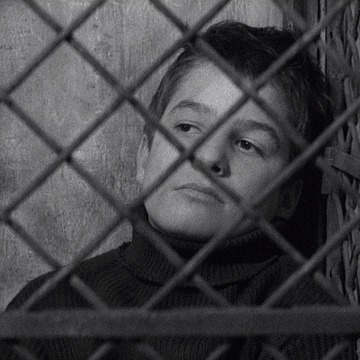James Burke: An Appreciation: “Television host, author and historian, Burke developed a wonderful and highly entertaining way of seeing the world as a connected whole, rather than the sum of random events. In his shows Connections, Connections2, and The Day the Universe Changed, he illustrated vast webs of related events, showing that history is not fully understood in a purely linear fashion, and that over-focusing on particular aspects of history or science blurs the big picture….
what makes James Burke impressive is not an ability to string trivia together. He’s developed a multi-tier approach to understanding human development that not only provides a broad view of the past but (as all good historians should do) also sheds light on possible futures. Better still, he trains his viewers and readers to see the world this way as well…” (via Tor.com.)
Earlier, I posted a brief shout out to Carl Sagan, astronomer and host of the groundbreaking TV show, Cosmos, first broadcast on PBS in 1980. I can’t say the show turned me on to astronomy—science fiction and the space program had done that years before. But it was exciting and energizing, and it made science seem cool (for certain values of coolness) and profound in ways that perhaps hadn’t sufficiently registered before.
It was preceded, though, by Connections, a ten-episode TV series created, written and presented by science historian James Burke, and broadcast first in the UK in 1978 and the following year in the USA:
It took an interdisciplinary approach to the history of science and invention and demonstrated how various discoveries, scientific achievements, and historical world events were built from one another successively in an interconnected way to bring about particular aspects of modern technology. The series was noted for Burke’s crisp and enthusiastic presentation (and dry humour), historical reenactments, and intricate working models. (via Wikipedia.)
Like Sagan, Burke had real style—albeit a nerdy kind of style. But Burke was less serious, less “profound” than Sagan, and so clearly excited and having fun that it was quite infectious. And what we got infected with was an interest in and knowledge about the connections in history, and in particular between science and history. I suspect that for many people, like me, it made the history they were getting at school seem dull and limited by comparison.

And, frankly, Burke was just such a wild man—running around in his safari leisure suits which seem like such a style fail now—in love with his ability to see these often wacky and unexpected connections. He’s a hoot, a pleasure. Even those safari suits look kinda good on him, looking back now, their style-fail qualities suiting his enthusiastic nerdiness.
In these times, when science has become so much more obviously central not only to government policy, but to our hopes and fears for the planet—I’m thinking in particular of climate change—we could use some smart, funny and engaging popularizers like James Burke and Carl Sagan.
But don’t think that just because these shows are thirty years old, they don’t still have a lot to offer. Some of the science in Cosmos and the history in Connections may no longer be entirely accurate or current, but most of it is, and the main thrusts and arguments are as persuasive and interesting now as then.
In addition to the TV series, Burke wrote a number of books exploring connections in similar ways, and they make for very good reading. With all the nonsense being spouted by Republicans, Tea Partiers and their ilk over the founding founders and the Constitution, this one might be particularly interesting (though I haven’t yet read it):
Using the unique approach that he has employed in his previous books, author, columnist, and television commentator James Burke shows us our connections to the fifty-six men who signed the Declaration of Independence. Over the two hundred-plus years that separate us, these connections are often surprising and always fascinating. Burke turns the signers from historical icons into flesh-and-blood people: Some were shady financial manipulators, most were masterful political operators, a few were good human beings, and some were great men. The network that links them to us is also peopled by all sorts, from spies and assassins to lovers and adulterers, inventors and artists. The ties may be more direct for some of us than others, but we are all linked in some way to these founders of our nation.
Amazon
Here’s the first episode of Connections, followed by the opening of Cosmos:
For more…
- Connections (TV series) – Wikipedia
- Connections, by James Burke – Bookshop.org
- Circles: Fifty Round Trips Through History Technology Science Culture by James Burke – Bookshop.org
- American Connections: The Founding Fathers. Networked. by James Burke – Bookshop.org
- Cosmos: A Personal Voyage – Wikipedia
- Cosmos, by Carl Sagan – Bookshop.org
- Connections 1 (DVD) – Amazon
- Cosmos: Carl Sagan (DVD) – Amazon
- Brian Cox talks about Carl Sagan | Bad Astronomy | Discover Magazine
- BBC – Connections – Complete, History, Science (torrent) – TPB
- Cosmos – Carl Sagan (Complete Edition) (torrent) – TPB




